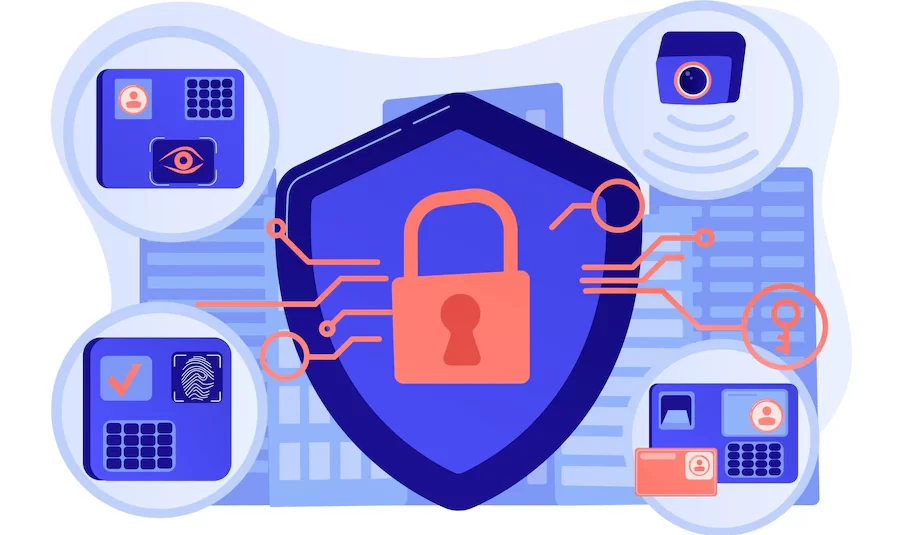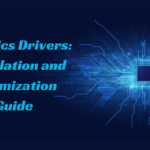How To Ensure Identity Access Management In Your Enterprise
- 1 How To Ensure Identity Access Management In Your Enterprise
- 1.1 Identity and Access Management (IAM)
- 1.2 The Benefits of IAM
- 1.3 Service Cost Reduction
- 1.4 Better Security
- 1.5 Improved Productivity
- 1.6 Ease of Use
- 1.7 Identity and Access Management Best Practices
- 1.8 Ensuring Full Visibility
- 1.9 Creating and Assigning Role-based Privileges
- 1.10 Strong Password Policies
- 1.11 Zero Trust Network Access (ZTNA)
- 1.12 Automation Support
- 2 Final Remarks
In an era where almost everything is cloud-based, the network security of enterprises shouldn’t be taken so lightly. Identity Access Management is a crucial component for businesses to secure their infrastructure. It provides practical, cost-efficient, and secure operations. So, properly implementing up-to-date Identity and Access Management tools can help you fully benefit from them and tightly secure your corporate network. Also, IAM helps your enterprise to comply with new security regulations and standards. Now, let’s look at IAM technology in depth and how to ensure Identity Access Management in enterprises.
How To Ensure Identity Access Management In Your Enterprise
Identity and Access Management (IAM)
Identity and Access Management is a solution that monitors activity and controls access, user privileges, and authentication processes. IAM aims to prevent unauthorized access to network resources. Administrators can define user access privileges to specific network resources, verify the identity of authorized users, create profiles, and monitor users’ activity. With IAM, user permissions are authenticated with various tools such as two-factor authentication, multi-factor authentication, SSO (Single Sign-on), and biometrics.
It provides access from different locations and devices and across many applications. It significantly improves security across the whole network. So, it allows users to access resources safely — protecting both them and your enterprise. Additionally, IAM enables your enterprise to administer access certifications and establish full compliance.
The Benefits of IAM
Identity and Access Management technology contributes various core benefits to your enterprise, ranging from improved security to reduced costs. One thing is sure: Your enterprise will get your money’s worth from using the IAM solution. Because Identity and Access Management also reduces service costs upon implementation.
Service Cost Reduction
Implementing an Identity and Access Management solution helps cut additional outsourcing and maintenance costs while lowering operating costs. Cutting the need to buy and maintain the network infrastructure will save your enterprise from spending both time and thousands (or even millions) of dollars. Identity and Access Management tools are simple yet effective solutions and can reduce administration costs. Also, Identity and Access Management tools ensure data confidentiality. IAM tools tighten the overall security so that no breaches of information occur and result in financial and reputational damages.
Better Security
Identity Access Management provides micro-management of access controls, authentication, and authorization. With IAM technology, administrators monitor activity and police access to sensitive files by restricting who can access them and verifying the identity of authorized personnel.
Your IT team can create individual profiles, assign role-based rights, and update when needed to block lateral movement in the infrastructure. Additionally, Identity Access Management tools use advanced authentication technologies such as multifactor authentication, SSO (Single Sign-on), and biometrics. IAM reduces the attack surface by limiting user access, ensuring simplicity in determining the origin of anomalies.
Improved Productivity
IAM tools ensure the automation of identification and access controls. IAM centralizes the automated identity and access management lifecycle, reducing errors. On a large scale, the provisioning of user access is time-efficient and improves productivity for identity access management. In the case of new hires and role transitions, the administrator’s productivity will increase with the automated role-based access privileges.
Ease of Use
Identity and Access Management tools provide simplicity in access management and user provisioning. Ease of use is ensured by reducing the steps and time needed to manage identity access. Also, IAM minimizes the complexity of editing user access guidelines.
Your enterprise can significantly benefit from IAM technology. However, note that implementing Identity Access Management best practices will unleash the solution’s full potential.
Identity and Access Management Best Practices
Identity Access Management can improve security and offer great benefits by using various practices. Before enforcing the best practices, it is crucial to determine the project goals and map the workforce and resources needed for IAM implementation. A mismatched strategy can prevent your organization from fully benefiting from IAM.
Ensuring Full Visibility
The Identity and Access Management tools are highly scalable and flexible. Monitoring activity across the network in large workforces can be demanding. But IAM technology ensures full visibility for policing access and monitoring every user’s activity with their assigned privileges. Also, centralization ensures easier real-time monitoring of every network endpoint.
Creating and Assigning Role-based Privileges
User permissions should be granted according to role-based privileges for more intelligent control. Creating and updating individual privileges can be dreadful for IT teams of large corporations. So, it is vital to develop intelligent role definitions and privileges.
Strong Password Policies
Password policies are often overlooked when advanced authentication procedures are used. However, strong password policies should be enforced since even the most sophisticated security tools can only protect to a certain extent. Users should have unique and complex passwords and regularly change them. This is a solution to prevent cyberattacks and enhance network security.
Zero Trust Network Access (ZTNA)
Zero Trust Network Access solution considers every access attempt untrusted until their authorization is proved. That’s because it was developed with the Zero Trust principle, which states, “trusting none, verifying all.” This method ensures that every user’s credentials are checked before permitting access. By enabling ZTNA with IAM solutions, your enterprise can get rid of any lateral movement across the network.
Automation Support
It is beneficial to assist your IT teams with automated access controls. For example, pre-assigned roles help integrate new hires or role transitions into security protocols. Automation functions reduce an enormous amount of workload and costs associated with IAM. But this doesn’t mean that automation processes shouldn’t be checked. Since access policies and infrastructure can change, it is vital to assess automated processes.
Final Remarks
Identity and Access Management is an effective and cost-efficient technology that improves network security and achieves complete compliance. To ensure Identity Access Management, your enterprise should analyze the current infrastructure and map out the implementation process. This includes auditing legacy systems, determining the vulnerabilities and opportunities, considering user profiles, resources, and access scenarios, and, most importantly, defining the core objectives and goals of the project. Make sure the IAM solution is tailored to your enterprise to benefit fully.


















